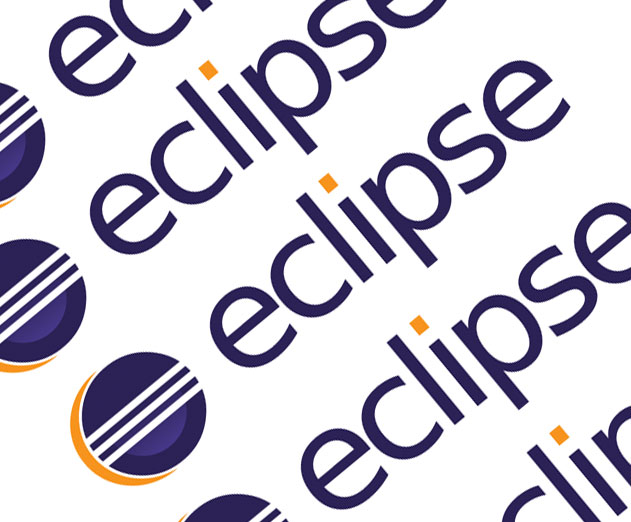Eclipse Foundation Teams with Codenvy, IBM, Pivotal and SAP to Create New Eclipse Cloud Development Imitative
Tuesday, October 28, 2014

|
Richard Harris |
The Eclipse Foundation is announcing the Eclipse Cloud Development (ECD), a new endeavor to create the technologies, platforms, and tools necessary to enable the delivery of highly integrated cloud development and cloud developer environments.
This new initiative will establish an open source community dedicated to cloud development tools, with over 65 developers and 8 companies participating by providing committers and by investing resources. Codenvy, IBM, Pivotal and SAP will staff the steering committee of the new Eclipse Cloud Development top-level project (ECD).
The Eclipse Foundation ECD platform is the organization’s response to the rapid rise in cloud computing and the effect it has had on how applications are deployed and consumed, as developers struggle with a disparate blend of desktop and cloud services that may not work together or share the same standards or protocols.
ECD is a solution that provides developers an open, modern, and integrated set of technologies that can be used to provision cloud development platforms, create cloud developer environments, and support the interaction of clients (such as IDEs) with distributed services. The ECD initiative will deliver services and tools for cloud orchestration of IDEs, build systems, continuous integration, code assistants, and debugging.
The Eclipse Cloud Development project encompasses three areas of work:
- Industry-Oriented Developer Environments. Providing industry-oriented solutions based upon ECD building blocks.
- Platforms for Hosting & Connecting Developer Environments. Creating the technologies to host, scale, integrate, and manage developer and development environments.
- Tools to Extend Platforms. Creating the tools to build, extend and adopt these platforms for new development scenarios.
ECD will bring together existing and new cloud based projects to establish common building blocks, protocols, and APIs to facilitate interoperability. The initial projects hosted by ECD include:
- Eclipse Orion: A cloud IDE with services for JavaScript and dynamic languages.
- Eclipse Flux: A messaging bus that enables interoperability between desktop and cloud development tools and between development micro-services.
- Eclipse Che: An extensible platform for SaaS developer environments that provisions, shares, and scales projects.
- Eclipse Dirigible: A proposed project for a cloud IDE that supports a full development lifecycle of on-demand applications leveraging in-system programming models and rapid application development techniques.
Eclipse Che is a project to create a platform for creating cloud developer environments containing the tools, infrastructure, and processes necessary for a developer to edit, build, test, and debug an application. It offers an environment that is hosted, whether running on a desktop, in datacenter, or in the cloud and the environment can be cloned, embedded, and shared in ways that decentralized workspaces cannot.
Che contains a set of microservices representing the developer workflow that are connected through CLI, API, and a JavaScript client. The JavaScript client is based upon an open kernal architecture that is fully extensible, following the Eclipse RCP architectural approach for distributed Web applications. Che is authored in Java, with a design optimized to minimize the port of Eclipse RCP plug-ins to operate in a distributed system with a JavaScript front-end. The Che project includes dozens of plug-ins, covering a variety of editors, languages, builders, source code management, and debuggers.
The Eclipse Flux project focuses on designing and implementing a new architecture and infrastructure for integrating development tools across desktop, browser, and servers. The goal is to provide an extremely flexible platform and infrastructure that allows new cloud-based tooling components to be built highly decoupled from each other and that bridges the gap to existing desktop IDEs at the same time.
Eclipse Orion's objective is to create a browser-based open tool integration platform which is entirely focused on developing for the web, in the web. Tools are written in JavaScript and run in the browser. Unlike other attempts at creating browser-based development tools, this is not an IDE running in a single tab. Links work and can be shared and developers have the ability to open a file in a new tab.
Eclipse Dirigible extends the concepts promoted by Orion and Che to deliver on a rapid application development framework, fully hosted in the cloud. Dirigible abstractions make developing Web services and the clients that consume them structured with scaffolding, rapid, and easier to maintain. Rapid development frameworks have commonly been deployed to support database and packaged application development, and Dirigible brings those concepts to cloud developer environments.
All of the projects agree on core principles relating to providing developer services as atomic microservices, decoupling the clients (IDEs) that consume those services from the services themselves, supporting a broad range of clients (whether our browser IDEs or desktop IDEs connected over a bus), and providing a consistent way to provision, share and scale hosted developer environments together.
Full information on the ECD platform, as well as opportunities to participate in the project are available on the Eclipse Foundation website.
Read more: https://www.eclipse.org/ecd/

Become a subscriber of App Developer Magazine for just $5.99 a month and take advantage of all these perks.
MEMBERS GET ACCESS TO
- - Exclusive content from leaders in the industry
- - Q&A articles from industry leaders
- - Tips and tricks from the most successful developers weekly
- - Monthly issues, including all 90+ back-issues since 2012
- - Event discounts and early-bird signups
- - Gain insight from top achievers in the app store
- - Learn what tools to use, what SDK's to use, and more
Subscribe here











